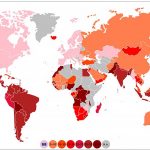It goes by variations of the same name. Best-cost country, low-cost country, best-cost sourcing, etc. These all identify a method of material sourcing that recognizes that in a dynamic global economy, the best source for materials can and does change. Companies must regularly review their procurement practices and sources to maintain or obtain a competitive advantage. These reviews, however, need to go beyond the sourcing cost and consider other factors. Doing so will provide great advantages to a company’s supply chain.
Ensure Comparable Outputs
The direct price of the material and shipping are the basis for any procurement assessment. As an experienced procurement manager, you will ensure all bids are for the same specs, volume, and timetables. You’ll also evaluate the impact of tariffs on your costs. But this is just the beginning.
Material Consistency
Consistency of the quality of the material is the basis for everything that follows in the production process. For many products, even marginally out-of-specification inputs can have drastic and costly effects on the final product. While all bids are for the same output, does the provider have a track record of reliability for similar material production?
Priority Customer
Priority in production to ensure reliable supplies is an important factor. Understanding where your company stands relative to the other customers of your suppliers is vital, and being on the top of the list will have a price. Keep in mind that being the biggest buyer for a small supplier, by extension, makes your company vulnerable to the weakness of the supplier in the marketplace. This risk must be part of the assessment.
Dependable Logistics
Transportation dependability is a key consideration. While the materials may be produced at a competitive rate and schedule, the shipping and transportation have to be reliable for this to have real value. Material stuck in a foreign port is of no value to domestic production. Either your company or the supplier should have an established, dependable shipping partner.
Flexible Production Capacity
Production flexibility will be important. This is more critical in volatile or highly seasonal sectors but must be part of all procurement reviews. Does the supplier have the capacity to ramp up or draw down production as your business requirements change? And, related to the prior point, will your company have the needed priority to be first in line for the production capacity if needed?
Of course, when you get into the details of the procurement process review, a great deal more detail must be evaluated. For more information, visit our Best Cost Country consulting information page or contact us to set up a call.






